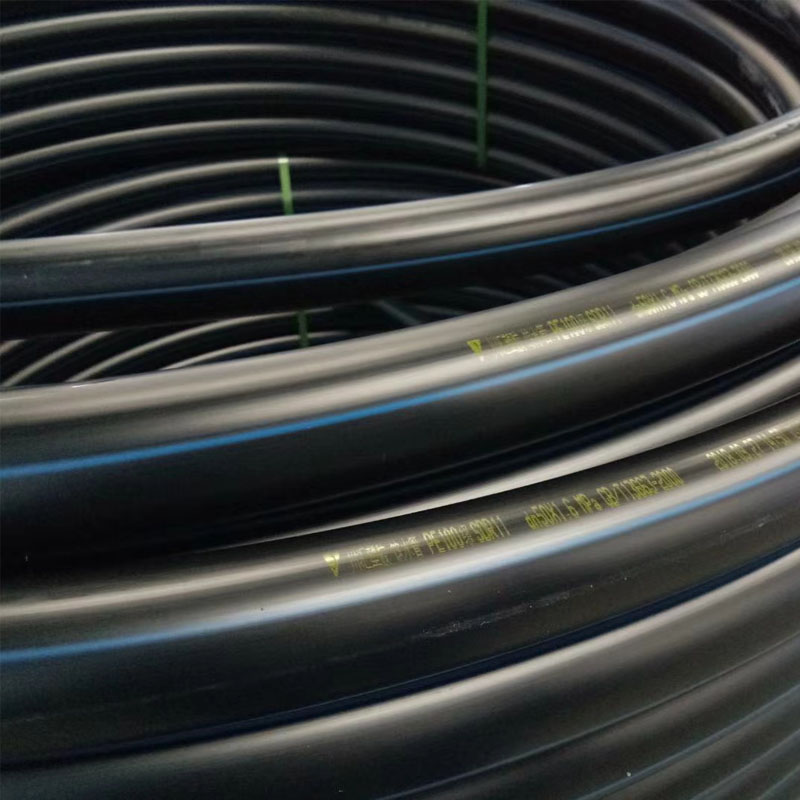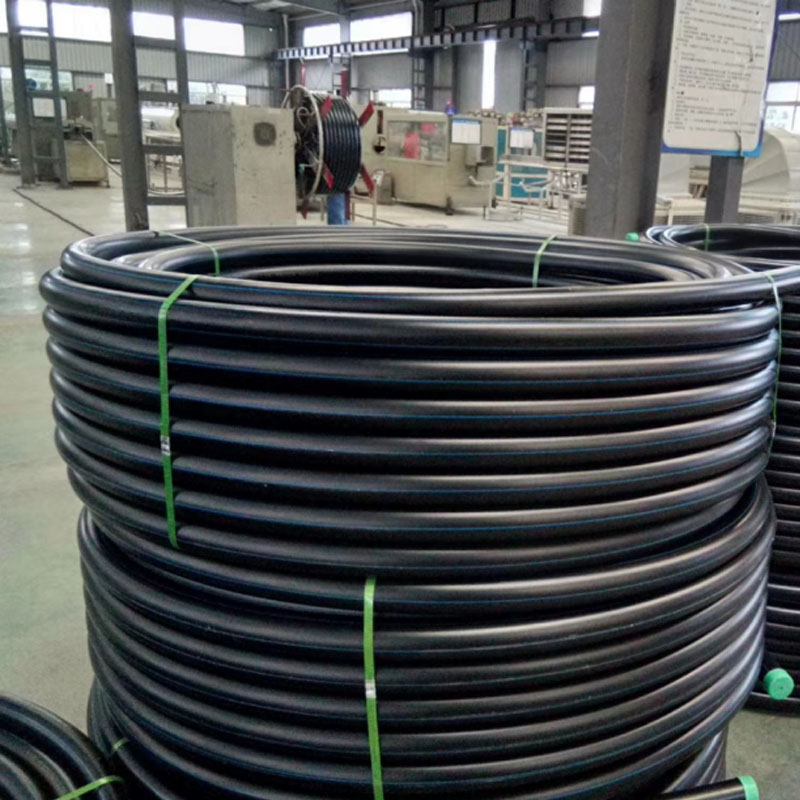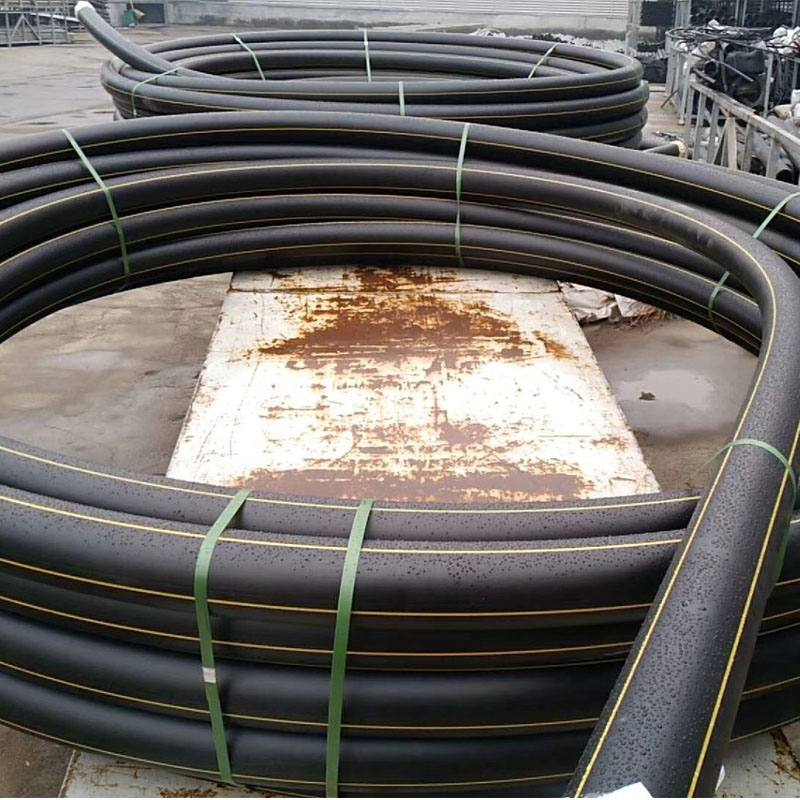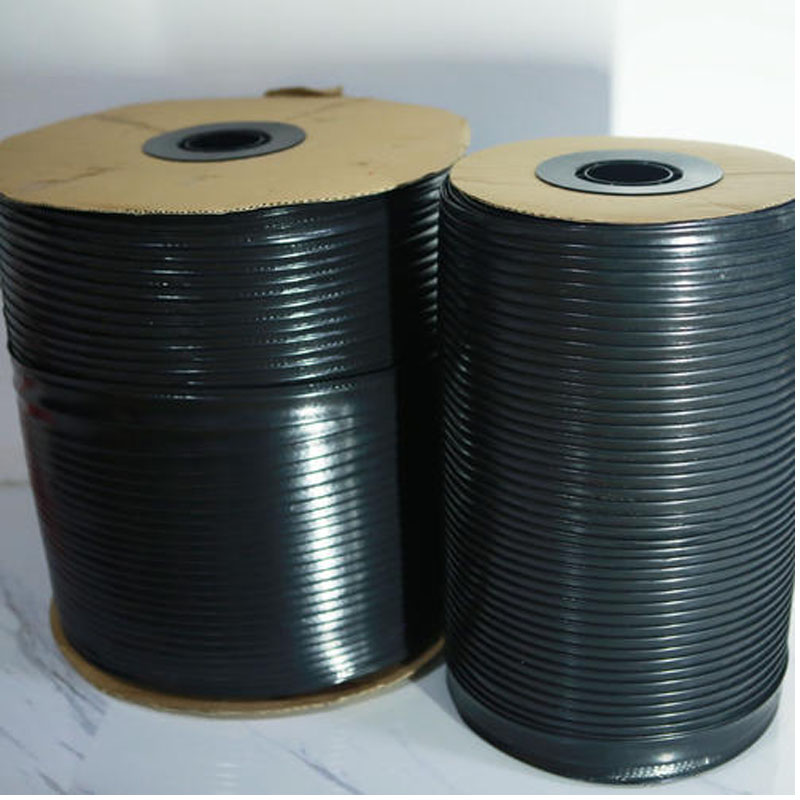Aug . 11, 2025 11:20 Back to list
DN50 HDPE Pipes in Coils: Flexible, Durable & Easy Install
The Backbone of Modern Infrastructure: Understanding DN50 HDPE pipes in coils
In the rapidly evolving landscape of industrial and civil infrastructure, the demand for resilient, efficient, and cost-effective piping solutions is paramount. Among the leading choices, High-Density Polyethylene (HDPE) pipes have emerged as a superior alternative to traditional materials like steel, PVC, or concrete. Specifically, the DN50 HDPE pipes in coils represent a critical component for numerous applications due to their unique properties and versatile format. DN50 signifies a nominal diameter of 50mm, a size ideal for a wide range of fluid transfer needs, while the coil form factor enables longer continuous runs, minimizing joints and installation time. This article delves into the technical intricacies, manufacturing excellence, diverse applications, and inherent advantages of these essential conduits, providing B2B decision-makers and technical personnel with a comprehensive understanding of their value proposition.
The industry trend is clearly shifting towards sustainable and durable materials, and HDPE, known for its longevity and minimal environmental impact, perfectly aligns with these demands. Its inherent resistance to corrosion, abrasion, and chemical attack makes it a reliable choice for long-term projects, ensuring reduced maintenance costs and extended service life. Understanding the nuances of DN50 HDPE pipes in coils, from their material composition to their specific performance characteristics, is crucial for optimizing project efficiency and achieving superior operational outcomes in sectors ranging from water distribution to telecommunications.
Unveiling the Manufacturing Excellence: The Journey of HDPE Pipes
The production of DN50 HDPE pipes in coils is a sophisticated process rooted in polymer extrusion technology, ensuring consistent quality and performance. The journey begins with high-grade HDPE resin, typically categorized as PE100 or PE80, indicating the minimum required strength (MRS) in MPa. This granular material is fed into an extruder, where it is heated, melted, and homogenized. The molten polymer is then forced through a die, which precisely shapes it into the desired pipe diameter (DN50) and wall thickness. Immediately after extrusion, the pipe is carefully cooled in a water bath, a critical step that dictates its final dimensional stability and crystallinity.

Following the cooling process, the continuous pipe is automatically spooled into coils, making it suitable for transport and installation, especially in applications requiring long, joint-free runs. Quality control is integral at every stage. Pipes are rigorously inspected for dimensional accuracy, surface finish, and freedom from defects. Key testing standards include ISO 4427 for water supply applications and DIN 8074/8075, which define general quality requirements for HDPE pipes. These standards ensure parameters like Melt Flow Rate (MFR), density, tensile strength, elongation at break, and most importantly, long-term hydrostatic strength. The service life of properly installed and maintained DN50 HDPE pipes in coils can exceed 50 years, often reaching up to 100 years, making them a sustainable choice for permanent infrastructure projects in sectors like petrochemical, metallurgical, and municipal water and wastewater management. Their non-corrosive nature significantly reduces maintenance costs and environmental impact compared to metal alternatives.
Key Technical Specifications & Parameters for DN50 HDPE Pipes
Selecting the appropriate DN50 HDPE pipes in coils necessitates a clear understanding of their technical specifications. These parameters define the pipe's suitability for specific pressure ratings, environmental conditions, and fluid compatibility. The Standard Dimension Ratio (SDR) is a crucial metric, indicating the ratio of pipe outside diameter to its wall thickness. A lower SDR value signifies a thicker wall and higher pressure rating. For instance, SDR11 pipes are designed for higher pressures than SDR17. Materials like PE100 offer superior stress cracking resistance and long-term hydrostatic strength compared to older PE80 grades, making them preferred for demanding applications.
| Parameter | Value/Range | Unit/Description |
|---|---|---|
| Nominal Diameter (DN) | 50 | mm |
| Outside Diameter (OD) | 63 | mm |
| Standard Dimension Ratio (SDR) | 11 / 17 / 21 / 26 | (Lower SDR = Higher Pressure) |
| Wall Thickness (for SDR11) | 5.8 | mm |
| Wall Thickness (for SDR17) | 3.8 | mm |
| Nominal Pressure (PN for SDR11) | 16 | Bar (PN16) |
| Nominal Pressure (PN for SDR17) | 10 | Bar (PN10) |
| Material Grade | PE100 / PE80 | High-Density Polyethylene |
| Density | 0.93 - 0.96 | g/cm³ |
| Melt Flow Rate (MFR @190°C/5kg) | 0.2 - 1.5 | g/10min |
| Tensile Strength at Yield | >21 | MPa |
| Elongation at Break | >600 | % |
These parameters are critical for engineers and project managers to specify the correct pipe for the intended application, ensuring safety, efficiency, and compliance with international standards.
Versatile Applications Across Diverse Industries
The adaptability and robust performance of DN50 HDPE pipes in coils make them indispensable across a multitude of industries. In municipal water supply, these pipes are favored for potable water distribution, service lines, and rural water schemes due to their non-toxic nature, resistance to scaling, and long-term reliability. Their flexibility allows for trenchless installation methods, such as horizontal directional drilling (HDD), which significantly reduces disruption and installation costs, especially in urban environments or challenging terrains. In irrigation, DN50 HDPE coils are ideal for delivering water efficiently across farms, minimizing leakage and ensuring optimal water pressure for various agricultural needs.

Beyond water, these pipes are extensively used in industrial applications for transporting a wide array of chemicals, slurries, and even natural gas at lower pressures, thanks to their excellent chemical resistance. The mining sector utilizes them for process water, tailings, and dewatering applications, where their abrasion resistance and resilience to harsh conditions are highly valued. In telecommunications and power cable protection, DN50 HDPE pipes in coils serve as protective conduits, shielding sensitive cables from environmental damage and facilitating future upgrades. The ability to supply these pipes in long coil lengths, sometimes up to 500 meters or more for smaller diameters, drastically reduces the number of fusion joints required, thereby enhancing system integrity and reducing potential leak points. This advantage is particularly pronounced in large-scale projects where jointing time and costs can be substantial.
Unmatched Technical Advantages of HDPE Piping Systems
The widespread adoption of DN50 HDPE pipes in coils is largely due to their comprehensive suite of technical advantages. Foremost is their exceptional corrosion resistance. Unlike metallic pipes, HDPE does not rust, rot, or corrode, making it impervious to the aggressive chemicals found in soils and fluids. This eliminates the need for cathodic protection or coatings, significantly reducing long-term maintenance costs and environmental risks associated with pipe degradation. Furthermore, HDPE pipes exhibit excellent abrasion resistance, which is critical in applications involving abrasive slurries, as seen in mining or dredging operations.
The inherent flexibility of HDPE pipes allows them to withstand ground movement, seismic activity, and freeze-thaw cycles without breaking, a significant advantage over rigid piping materials. Their light weight simplifies handling, transport, and installation, leading to reduced labor and equipment costs. The smooth inner bore of HDPE pipes results in superior flow characteristics and minimal friction losses, contributing to energy savings in pumping operations. Moreover, HDPE's ability to be joined by heat fusion (butt fusion or electrofusion) creates a monolithic, leak-free system that is as strong as the pipe itself, eliminating common failure points associated with mechanical joints. This fusion capability, combined with their coiled delivery, makes for an incredibly robust and efficient pipeline system.
Choosing Your Partner: Manufacturer Considerations & Custom Solutions
When sourcing DN50 HDPE pipes in coils, selecting a reputable manufacturer is paramount to ensure product quality, reliability, and project success. Key factors to consider include the manufacturer's adherence to international standards (e.g., ISO 9001 quality management, ISO 14001 environmental management), their track record of service, and their commitment to sustainable practices. A manufacturer with extensive service years and positive client testimonials indicates a trusted and experienced partner. Furthermore, assess their capability to provide comprehensive technical support, including guidance on installation, welding procedures, and system design.

Many projects require customized solutions beyond standard pipe dimensions. A capable manufacturer should offer tailored lengths for DN50 HDPE pipes in coils, specific pressure ratings (SDRs), and even pipes with specialized additives for UV resistance or increased abrasion resistance. For example, some applications might benefit from co-extruded pipes with a colored outer layer for identification purposes (e.g., blue for water, yellow for gas). Partnering with a company that offers end-to-end solutions, from consultation and design to delivery and post-sales support, can significantly streamline project execution and mitigate risks. Factory Acceptance Tests (FAT) and detailed Material Test Reports (MTRs) should be standard offerings, providing verifiable proof of quality and compliance.
Real-World Impact: Case Studies & Customer Success
The proven efficacy of DN50 HDPE pipes in coils is best illustrated through real-world applications and positive customer feedback. For instance, a major agricultural project in a drought-prone region successfully implemented a DN50 HDPE coiled pipeline system spanning several kilometers for drip irrigation. The ability to deploy long, continuous runs minimized the need for frequent fusion joints, drastically cutting down installation time by 40% and reducing material wastage. The pipe's inherent flexibility allowed it to conform to uneven terrain without requiring extensive trenching, leading to significant cost savings in earthworks.

Another compelling case involved a municipal upgrade of an aging water service network. By utilizing DN50 HDPE pipes in coils with a trenchless installation method, the city significantly reduced public disruption and traffic interference compared to traditional open-cut methods. Post-installation leak detection tests revealed zero leaks, a testament to the integrity of heat-fused HDPE systems. Client feedback consistently highlights the low maintenance requirements and the impressive longevity of these installations, often surpassing the performance of conventional piping materials over several decades. These examples underscore the tangible benefits – cost savings, improved efficiency, and enhanced system reliability – that DN50 HDPE pipes in coils bring to diverse infrastructure projects.
Ensuring Your Investment: Quality Assurance & Support
Investing in high-quality DN50 HDPE pipes in coils is a long-term commitment. Therefore, understanding the manufacturer's quality assurance processes and after-sales support is crucial. Reputable suppliers conduct stringent quality checks, including hydrostatic pressure testing, dimensional analysis, and material property verification, all compliant with international standards like ISO and ASTM. A transparent delivery schedule and a clear warranty promise are indicators of a trustworthy partner. Typically, a 10-year or longer warranty against manufacturing defects is provided, reinforcing confidence in the product's durability.
Customer support, including technical assistance for installation guidance, troubleshooting, and material compatibility queries, should be readily available. This comprehensive support network ensures smooth project execution and provides peace of mind throughout the pipe's extensive service life.
Frequently Asked Questions (FAQ)
Q1: What is the typical service life of DN50 HDPE pipes?
A1: Under normal operating conditions and proper installation, DN50 HDPE pipes are designed for a service life of 50 to 100 years, significantly outlasting many traditional piping materials.
Q2: Can DN50 HDPE pipes be used for potable water?
A2: Yes, HDPE pipes manufactured to relevant standards (e.g., NSF/ANSI 61, ISO 4427) are safe for potable water transport and do not leach harmful chemicals or support bacterial growth.
Q3: What joining methods are used for DN50 HDPE pipes?
A3: The primary joining methods are heat fusion techniques, specifically butt fusion and electrofusion, which create strong, leak-proof joints. Mechanical fittings can also be used for certain applications.
Q4: What is the standard delivery coil length for DN50 HDPE pipes?
A4: Standard coil lengths for DN50 can vary, but commonly range from 100 meters up to 500 meters or even longer, depending on manufacturing capabilities and transport logistics. Custom lengths are often available.
Our commitment to quality ensures that every meter of DN50 HDPE pipes in coils meets the highest industry benchmarks, supported by transparent processes and dedicated customer service. Typical delivery cycles are optimized for efficiency, with standard orders processed within 2-4 weeks, subject to volume and customization requirements.
Concluding Thoughts & Future Outlook
The prominence of DN50 HDPE pipes in coils in modern infrastructure is undeniable. Their combination of durability, flexibility, chemical resistance, and long service life positions them as a leading choice for a wide array of fluid transport applications. As industries continue to seek sustainable, efficient, and cost-effective solutions, the demand for high-quality HDPE piping is only set to grow. By understanding the technical parameters, manufacturing processes, and myriad applications, B2B decision-makers can confidently specify and integrate these advanced piping solutions into their projects, ensuring long-term operational excellence and significant return on investment. The transition from traditional materials to HDPE represents not just an engineering choice but a strategic move towards more resilient and responsible infrastructure development globally.
References
- ISO 4427:2019 - Plastics piping systems for water supply, and for drainage and sewerage under pressure — Polyethylene (PE) — Part 1: General.
- ASTM F714-22 - Standard Specification for High-Density Polyethylene Pipe and Fittings for Water Distribution and Transmission.
- The Plastic Pipe Institute (PPI) - Handbook of Polyethylene Pipe.
- Biron, M. (2012). Thermoplastics and Thermoplastic Composites. Elsevier.
-
DN100 PVC Well Casing Pipes - Durable & Corrosion-Resistant
NewsAug.13,2025
-
Flexible 32mm HDPE Pipes in Coil | Durable Water & Gas Lines
NewsAug.12,2025
-
32mm HDPE Pipes in Coil: Durable, Flexible, Easy Install
NewsAug.10,2025
-
140mm PVC Drilling Pipe: Durable & Efficient Well Casings
NewsAug.09,2025
-
Flexible DN50 HDPE Pipes in Coils: Durable & Easy Install
NewsAug.08,2025

